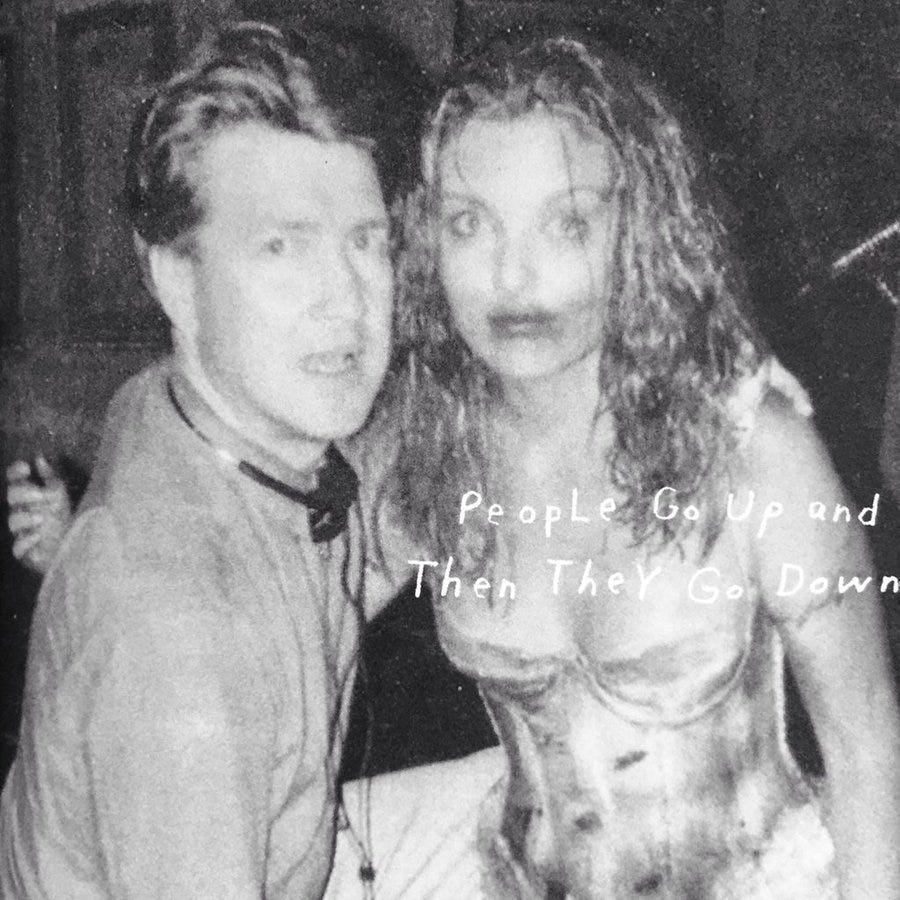The Art Life is what David Lynch describes as “the incredible happiness of working” and “[not wanting] to be anywhere that isn’t my world.”
He’s a painter. “Film,” he said, “came out of wanting to make a picture move.” And film, he believes, should be felt in the way of music, or inhabited like a dream. It’s not something to be quantified or explained—words perhaps should fail you—but about “[trusting] the understanding that comes from the experience.”
David Lynch sees life in “extreme close-ups.” This is reflected in the exhaustive attention to detail in his highly aesthetic, painstakingly composed moving pictures—in the gritty textures of their violence, their sex, their light and their dark. If you’ve seen a David Lynch film, you know how much they adhere to dream logic; he’s unconcerned with executing any traditional or expected narrative order. He’s here to make art that simply refuses to be anything less than itself, on its own terms.
Reading about his approach to his work has changed my understanding of it; I don’t always like every piece of art he’s produced, but I’ve come to love all of it for being what and why it is to the man who made it, and for what it’s helped me come to understand about the what and why of making my own.
Lynch announced his arrival in the larger world of cinema with his wildly unique and wildly exciting feature film debut, Eraserhead. Eraserhead got the right kind of attention at the right time from the right kind of people and opened the door for him to direct The Elephant Man, a professional experience that was markedly different, and markedly less free than the last. His first studio film saw him working with other people’s time and money, and there was no small amount of pressure for his relatively untested talent to prove itself. In the end, that’s exactly what he did: The Elephant Man went on to be nominated for eight Academy Awards, including Best Picture and Best Director—not bad for a second time out.
His 1984 adaptation of Frank Herbert’s bestselling novel, Dune, would follow. That film put more money and resources in front of him than he’d ever had access to before and he accepted them knowing final cut of the film would belong to its producers.
“The thing is, you fall in love with an idea and it’s like falling in love with a girl. You’re in love and it’s beautiful and you stay true to those things,” he wrote in his bio-memoir hybrid, Room to Dream. “. . . You die two deaths if you’ve sold out and done none of what you were supposed to do. And that was Dune. You die once because you’ve sold out, and you die twice because it was a failure.”
This is where David Lynch’s art life most interests me. In a video compilation of his thoughts on that experience, he describes the shoot as “beautiful” but the movie itself “a huge gigantic sadness in my life . . . The film is not the film that I would have made had I had that final control.”
And why, he still seems to be asking years later in that same compilation, knowing what he knew at the time, would he invite death in the first place?
Staying true is generally the most important promise we make to ourselves as artists, and the through-line of much of what I’ve been reading about and sharing in my newsletters of late is the importance of committing your heart to your vision above all else because it’s the one part of your profession you can control, and the one part of it that’s always worth returning to. But ‘staying true’ is also a maxim exploited by creative industries, and the control we do have often becomes synonymous with the control we should expect to lose or cede elsewhere, and ultimately serves as an obfuscation of the negotiations and costs that define it—of what is truly paid, and what is really owed.
“The endgame is to allow things to drag on until union members start losing their apartments and start losing their houses,” an anonymous studio exec was quoted as saying by Deadline on July 11th. They were speaking of the Writer’s Guild, whose demands for fair compensation, protections against AI, and less exploitative working conditions were rejected by the Alliance of Motion Pictures and Television Producers, and has resulted in a strike that is, at my time of writing this, on Day 95.
A few days later, Disney CEO Bob Iger chimed in: “There’s a level of expectation they have that is just not realistic.”
On July 14th, the Screen Actors Guild went on strike after being denied similar demands and protections by the AMPTP. “I am shocked by the way the people that we have been in business with are treating us,” SAG-AFTRA President Fran Drescher said after negotiations collapsed.
I admit I do not find such things nearly so shocking. Within my own industry, I’ve heard so much about and from badly treated authors that even the most egregious accounts have taken on a worrying tinge of normalcy. I remember one such story of someone in publishing who said a member of their team would not compliment any of their authors’ books and this, they felt, reflected a commitment to that team members’ individual taste as a reader and deserved respect. I couldn’t help but imagine the authors on the receiving end of that silence and how little respected they might have felt in turn, and what a mockery it must have made of their trust—or what remained of it.
Imagine a professional environment comprised of small moments like that, and what paved their way, and still more, what it paves the way for. Imagine a professional environment where authors are forced to assume the creative and financial consequences of an unsupported book, where the mismanagement of their work can easily result in cancelled contracts, series, or paperbacks. Imagine authors with lost or frequently exploited rights by those same disinterested publishers. Imagine authors whose careers are derailed or deemed unrecoverable due to a lack of advocacy or the industry’s abuses of its own employees—its editors, its assistants, its publicists, its marketers, its sales force, its interns, and on and on . . .
“I just spoke to a Very Famous Author who has to remain nameless for legal reasons,” New York Times bestselling author Maureen Johnson tweeted on July 13th. “They are held up in contract negotiations because a Major Publisher wants to train AI on their work.”
Imagine.
While I believe in what will ultimately be hard-won victories for screenwriters, actors and authors on what I hope is a not-too distant horizon, I can’t help but think of the incredibly grim underpinnings: to resume work for places run by CEOs who have such contempt for the talent they’ve built their fortunes on, they think it deserves to starve—and they’re willing to say so out loud.
These violent collisions of art and industry leave devastating injuries in their wake, the kind I’ve sometimes likened to a flighted bird with a broken wing. What do you do about a wound that so thoroughly disconnects you from your nature, you have no choice but to reassess your entire concept of the sky? How do you stay true to your art in an industry that does not always stay true to its artists?
In his work following Dune, David Lynch seemed to even more carefully curate the people he invited into his process. He insisted on control. When studios gave him the freedom and support to do what he does best—being David Lynch—it was rare they went unrewarded; Blue Velvet netted him his second Academy Award nomination for Best Director. Wild at Heart, The Palm d’Or. Twin Peaks would become, and remain, a pop culture phenomenon and made way for Fire Walk with Me, which at the time, would be the next movie to kill him: “[it] didn’t do anything out in the world, but I only died one time with that picture because I felt good about it.”
(In the years since, it has been widely reappraised as a masterpiece.)
“You can live with yourself perfectly fine,” Lynch tells us, “if you stay true to what you love.”
But the thing is, I can easily imagine his path from Eraserhead to The Elephant Man to relinquishing final cut of Dune, because despite the question of why he would do that, having all of the information he did at the time, he also attempts an answer: “I trusted that it would work out.”
When your talent has both proven itself and exceeded expectations, maybe you should believe it might win in the end. There’s a difference between being sold out and selling out, and I know more artists who have died of the former than they have the latter, but cannot pause long enough in blaming themselves to begin making that distinction. Lynch is right that it’s better to die having stayed true to your artistic convictions, but if you entered into a situation in good faith and optimism, and bet on yourself and your art in the face of all and any odds, does that mean you didn’t?
Whatever your answer, it’s become increasingly crucial that these killing things bolster the fight for our art and our rights as artists, and for future artists, and for those members of our industries who facilitate, support, and who genuinely believe in and respect our work. One of the things I like most about David Lynch’s definition of creative death is the implication it is an impermanent and survivable state, and that what lay beyond it are the revelations necessary to inspire the action required to reclaim the incredible happiness of working in that world that is—and will always be—our own.
How to support the writer’s and SAG strikes online and off [Mashable]
Support an author by buying their book.
Preorder the paperback edition of The Project.
Purchase I’m the Girl.
courtneysummers.ca
instagram.com/summerscourtney
https://www.threads.net/@summerscourtney




I've alway admired the way David Lynch makes things that are completely uniquely Lynch, and also seems to do what he wants (weather forcasts during covid lock down!). Twin Peaks is iconic and has influenced so many things, it's been on my rewatch list for a while now (so little time 😭). He sure knows how to end a season doesn't he 😱😱. It's been really interesting hearing his insights from you, so thank you for sharing 😊. And of course (of course of course of course!) I'm a hundred percent there for living a life of being true to your/myself (& other people being true to themselves).
Smart af, as usual. You already know how I feel about all this-- in the past when I've had to account for, uh, a particular creative choice I made, I reminded myself that all my life I will carry my books around, and they will be flawed, but they should be flawed in a way that's mine. Because at the end of the day when the internet and my email and my spouse and dog go to sleep, I'm alone with myself, and I must make the choices that allow me to feel at rest, if not perfectly satisfied. May we die only once, if we must die at all!